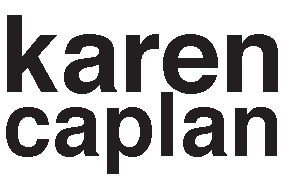As I look through my LinkedIn feed each day, I am seeing a lot of changes. People leaving jobs, joining new companies, getting promotions and more.
I sense that sometimes people think the grass is greener, but we all know the truth about that. If we leave our current employer, we hope to work with nicer people or we will feel more job satisfaction. Or, if we get that promotion, we will then feel more satisfied and appreciated. Or, if we terminate that toxic employee, the culture of our company will improve dramatically overnight.
The fact is, it’s all about setting expectations.
Let’s start at the beginning when you are recruiting a new team member or considering someone for a promotion. Are you realistic and brutally honest about the job expectations and skills required and how that person will be evaluated? Or do you try your best to make the job and the company sound inviting and near perfect, in hopes you can fill that position? Based on my years of experience, the more honest you are about your company, your culture, the demands of a position, the better chance you have of weeding out “bad fits”.
And what about checking references? As a company leader, for key positions I always called and spoke to references personally. Yes, I know that the Recruiter or HR leader says they can do that, but there have been so many times when I can hear in a person’s voice innuendos about a candidate. The recruiter or HR leader always wants to fill the position quickly, so turning down people who look good on paper is not a priority.
Remember one of my favorite mantras: Hire slowly, fire quickly.
And how do you improve the culture and performance of your company? You do it every time you hire a new person. Each hire or promotion changes your culture. You send a message to everyone on your team, about what you and the company value.
So, once you’ve made the hiring or promotion decision, then the real work begins. It’s all about systems and processes. Do you have a standard on-boarding process/documents/schedules for new team members?
Are you willing to invest the first 2-3 weeks giving them “orientation” about your company, and all the departments they will interact with? I’m not talking about “training” – I’m talking about orientation.
I first heard this idea when I on-boarded a new employee who interned at Whole Foods Markets. At Whole Foods, the first month an employee joined a headquarters team, they spent time doing everything except the job they were hired for. They got a chance to meet every department head and learn about the leaders’ roles, responsibilities, and how things happened. They unloaded trucks, bagged groceries, restocked shelves, sat in on team meetings, etc.
It was only after a month of getting oriented to the company and the company culture, did they finally sit at their workstation and learn the inner workings of the job they were hired for.
At first when this was explained to me, I thought “what a waste of time!” But my new employee convinced me that the investment up front in all team members, increased success in the long run. So I tried it and eventually, it became the standard at the produce company I ran.
We created a standard orientation schedule, detailing day by day, hour by hour for the first 2 weeks of a new employee’s tenure. At the end of each day, they checked in for 15 minutes with their manager to recap their day. I encouraged my managers to ask just one question: “What did you learn today?” That simple question usually elicited tons of information about how things were working plus it provided me with fodder for supplementing the orientation program.
As company CEO/President, I had all new employees (at every level) schedule a 30 minute orientation meeting with me during their 3rd week, so I could get to know them. It gave me a chance to personally talk about our company vision (where we are going), our mission (why we do, what we do) and explain our values.
As a company leader, you often have to push hard on your department heads to implement things they don’t want to. This detailed orientation program was one of the biggest push backs I got. “I need them to do the job I hired them to do” or “I don’t have time to develop an orientation or training program.”
If I could identify the single biggest predictor of an employees’ success, it would be the investment in time in interviewing and onboarding.
And if you are an employee and are joining a new firm, perhaps some of the best interview questions you could ask would be: Does your company have an orientation and onboarding process? Does the company have a playbook for my position? Who will I be reporting to in my new position and how often will I be meeting with them?
Remember, how you do anything is how you do everything. Investing time in new hires, onboarding processes and one-on-one meetings will give you incredible returns.
I guarantee that if you invest the time up front, you will quickly be able to identify mis-matches and will create a culture of performance.
Let’s go!
Onward and Upward,

If you’re enjoying what you’re reading, please consider recommending it to others. They can sign up here





